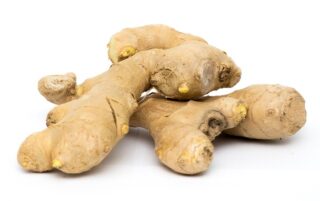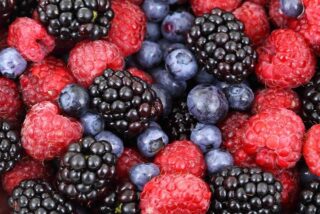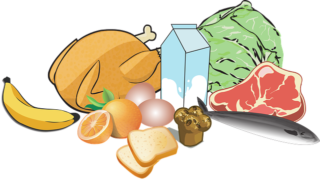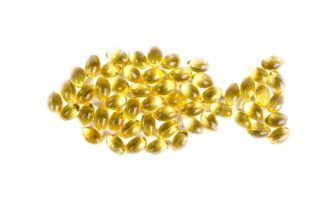According to the CDC, 6.1 million American children have been diagnosed with Attention Deficit Hyperactivity Disorder. Here in Canada the prevalence of ADHD in children is about 5%-9%. If your child has been diagnosed with ADHD, you’re probably wondering what you can do to help them. While there is no cure for ADHD, there are treatments that can help your child focus and succeed. Here are 10 natural treatments for ADHD that really work.
1. Omega-3s
Omega-3 fatty acids are essential for brain development and function. There is a lot of clinical research that supports the use of omega-3 supplements for children with ADHD. One study published in the journal Pediatrics showed that children who took omega-3 supplements had improved symptoms compared to those who didn’t take supplements. Another study, published in the Journal of Attention Disorders, showed that children who took omega-3 supplements had better focus and attention span. These studies suggest that omega-3 supplementation is a safe and effective treatment for ADHD symptoms. You can give your child an omega-3 supplement or increase their intake of fatty fish like salmon, mackerel, and herring.
2. Probiotics
Probiotics are live bacteria that are found in yogurt, sauerkraut, and other fermented foods. They help promote a healthy gut by keeping the balance of good and bad bacteria in check. A study published in the journal Nutrients found that probiotics were able to reduce symptoms of ADHD in children. The study found that the probiotic Lactobacillus rhamnosus was able to improve attention, hyperactivity, and impulsiveness in the children who took it. Another study published in the journal Pediatrics found that a combination of probiotics and prebiotics was able to improve symptoms of ADHD in children. A healthy gut has been linked to better mental health, so probiotics are a great natural treatment for ADHD.
3. Exercise
Exercise is a great way to release energy and improve focus. It also helps improve sleep, which is often an issue for children with ADHD. A study by the University of Massachusetts found that children who exercised for 30 minutes each day had improved focus and less hyperactivity.
4. Caffeine
Caffeine is a stimulant that can help improve focus and concentration. However, it should be used in moderation as too much caffeine can cause side effects like anxiety and irritability. A cup of tea in the morning can potentially help your child focus at school or during homework time. Clinical research has shown that caffeine can help improve cognitive function and memory recall. Additionally, caffeine can help increase energy levels and decrease fatigue. For these reasons, caffeine can be an effective tool for improving focus and productivity. However, it is important to note that caffeine should not be used by children under the age of 12.
5. Limit Screen Time
Screen time includes TV, video games, computers, and phones. Clinical research indicates that screen time can worsen symptoms of ADHD by causing restlessness and impulsivity. In one study, children with ADHD who were limited to 2 hours of screen time per day had improved attention and behavior. Another study found that children who exceeded 2 hours of screen time per day were more likely to have problems with inattention, hyperactivity, and aggressiveness. Therefore, it is important to limit screen time to no more than 2 hours per day for children with ADHD.
6. Get Enough Sleep
Sleep is essential for focus, concentration, and overall mental health. Children with ADHD often have difficulty falling asleep and staying asleep through the night. Establishing a bedtime routine can help your child wind down before sleep and feel more rested during the day. aim for at least 9 hours of sleep per night for children with ADHD.
7. Eat a Healthy Diet
A healthy diet is important for everyone, but it is especially important for children with ADHD. A diet high in sugar and processed foods can worsen symptoms while a diet rich in fruits, vegetables, and protein can improve them. Studies have shown that a healthy diet can help to improve ADHD symptoms. One study found that children who followed a healthy diet had improved focus and attention, less hyperactivity and impulsiveness, and better behavior overall.
8. Drink Plenty of Water
Studies have shown that dehydration can contribute to a decline in cognitive function and overall productivity. In one study, subjects who were mildly dehydrated scored lower on tests of mental performance and vigilance than those who were hydrated. Another study showed that dehydration can cause headaches and fatigue, both of which can lead to decreased concentration. It is therefore important for children to drink plenty of water throughout the day to stay focused and alert.
9. Try Herbal Supplements
Clinical research has shown that some herbal supplements can improve symptoms of ADHD. For example, a study published in the journal Biological Psychiatry found that ginkgo biloba improved attention and processing speed in adults with ADHD. Another study published in the journal Phytotherapy Research found that green tea improved symptoms of ADHD in children. And a study published in the journal Chemistry & Industry found that lemon balm improved focus and attention in children with ADHD.
10. Consider Neurofeedback Therapy
Neurofeedback therapy is a type of biofeedback that uses brain waves to feedback information about attention levels. This information is then used to train the brain to focus better. Neurofeedback therapy has been extensively researched and has been shown to be an effective treatment for ADHD. One study found that children who received neurofeedback therapy showed significantly better attention and behavior than those who did not receive the therapy. In addition, the benefits of neurofeedback therapy were found to last for up to two years after the therapy ended. This makes neurofeedback a desirable treatment for ADHD, as the long-term results are much better than those of medications.
Conclusion:
If your child has been diagnosed with attention deficit hyperactivity disorder (ADHD), you’re probably wondering what you can do to help them cope with the condition. Thankfully, there are many natural treatments that can help improve symptoms without the use of medication. By implementing some (or all) of these treatments into your child’s life, you can help them focus better, sleep better, eat better and feel better .
Introduction:
As a parent, you want what’s best for your child. You want them to be happy and healthy, and you’ll do whatever it takes to make that happen. But sometimes, figuring out “what’s best” can be tricky.
Take food sensitivity testing for kids, for example. You may have heard that it’s something you should do, but you may not be sure why or how. Don’t worry – I’m here to help! In this blog post, I’ll answer all of your questions about food sensitivity testing for kids so that you can make an informed decision about whether or not it’s right for your family.
What is food sensitivity testing?
Food sensitivity testing is a way to determine if your child is sensitive or allergic to certain foods. It’s important to note the difference between a sensitivity and an allergy – a food allergy is an immune system reaction that can occur after eating even a small amount of the offending food, and it can be life-threatening. A food sensitivity is less severe, but can still cause uncomfortable symptoms like nausea, stomach pain, diarrhea, eczema and headaches. If your child has any of these symptoms after eating certain foods, they may have a sensitivity to those foods.
Why is food sensitivity testing important?
If your child is sensitive to certain foods, it’s important to avoid those foods for a period of 12 weeks so that their immune system can clear the problematic antibodies Sometimes, even small amounts of the offending food can trigger symptoms. By identifying which foods your child is sensitive to, you can help them avoid those foods, feel their best, reset the immune system and perhaps reintroduce those foods in the future.
How is food sensitivity testing done?
There are several ways to test for sensitivities to specific foods. The most common method is a blood test. Your naturopathic doctor can give you a requisition for food sensitivity testing at your local lab. A small amount of blood is taken from either a vein or finger tip. This blood sample is sent for testing to detect IgG antibodies associated with particular foods. When the result is ready foods will either be identified as normal, borderline or elevated. At this point your Naturopathic Doctor will be able to recommend a dietary protocol to help reduce the antibodies. If there is an unusual amount of sensitivities, this can be a sign of Leaky Gut Syndrome.
Leaky Gut Syndrome
Leaky gut syndrome is a condition that can be caused by food sensitivities. It occurs when the lining of the intestines becomes damaged, allowing bacteria, food particles and toxins to leak into the bloodstream. This can lead to a wide range of symptoms, including fatigue, joint pain, skin problems, and digestive issues.
Treatment typically focuses on removing trigger foods from the diet and healing the gut lining with supplements and probiotics. In some cases, leaky gut syndrome can resolve on its own with time and supportive care.
Conclusion:
If you’re wondering whether or not your child should get food sensitivity testing done, we hope this blog post has helped clear things up for you! Testing can be a helpful way to identify which foods your child should avoid in order to feel their best every day. If you have any further questions about food sensitivities or allergies, don’t hesitate to reach out to me. I’ll be more than happy to help!
Introduction:
October means apple season is in full swing. And while apples are delicious and a great source of fiber, they also have some surprising health benefits. Here are 5 reasons to make sure you include apples in your diet this fall.
1. Apples Can Boost Your Immunity
One of the essential components of a strong immune system is vitamin C, and apples are packed with it. Just one small apple contains approximately 10% of your daily recommended intake of vitamin C. Vitamin C is a powerful antioxidant that helps protect your cells from damage and supports a healthy immune system.
Apples are also a good source of vitamin A, which is important for a strong immune system. Vitamin A helps the body’s natural defenses against infection and disease. It also helps to keep the skin and mucous membranes healthy. The body needs vitamin A to form white blood cells, which help to fight infection. Vitamin A is found in both the skin and the flesh of apples, so eating a whole apple is the best way to get the benefits.
In addition, apples contain polyphenols, which are plant-based compounds that have been shown to boost immunity.
Apples contain a type of polyphenol called quercetin. Quercetin is a plant-based compound that has been shown to provide a number of health benefits, including boosting the immune system. One study found that quercetin supplements were able to increase the production of infection-fighting cells in the body. Another study found that quercetin supplements were able to reduce the severity and duration of cold symptoms. Polyphenols like quercetin are just one of the many reasons why apples are often referred to as a “superfood.”
2. Apples Can Help Reduce the Risk of Diabetes
Type 2 diabetes is a serious and growing health concern, with over 29 million Americans affected by the disease. Eating apples has been linked with a lower risk of type 2 diabetes. This is likely due to the fact that apples contain pectin. Pectin helps to slow the digestion and absorption of carbohydrates, which helps to keep blood sugar levels stable. Additionally, apples are a good source of antioxidants, which can help improve insulin sensitivity.
3. Apples May Help Lower Cholesterol Levels
One large apple contains about 4 grams of fiber, half of which is pectin. Pectin has been shown to reduce cholesterol levels by binding to cholesterol molecules and removing them from the body before they can be absorbed into the bloodstream.
Research has supported the notion that apples can help reduce cholesterol levels. One study showed that eating two apples a day for four weeks resulted in a seven percent reduction in bad cholesterol and a five percent increase in good cholesterol. Another study found that women who ate an apple a day had lower cholesterol levels and a decreased risk of heart disease. The antioxidants and fiber in apples are thought to be responsible for these benefits.
4. Apples Can Help Keep Your Heart Healthy
In addition to reducing cholesterol levels, apples can also help keep your heart healthy by preventing plaque build-up in your arteries. This is thanks to the antioxidants found in apples, which help keep your arteries clear and prevent inflammation. One study published in the “European Journal of Nutrition” showed that eating apples every day for four weeks can reduce bad cholesterol levels by up to 10 percent.
5. Apples Can Aid in Weight Loss
Because they’re high in fiber and water, apples can help you feel fuller longer and prevent overeating throughout the day. 
Research indicates that apples may play a role in weight loss. One study showed that obese women who ate an apple before lunch felt more satiated and ate fewer calories than those who didn’t have an apple. Another study found that eating an apple at least three times per day helped participants lose weight and body fat. This may be due to the high fiber and water content of apples, which can help you feel fuller longer and prevent overeating. Additionally, apples are a low calorie food, providing just 95 calories per medium-sized apple. They’re also a good source of energy-boosting phosphorus.
Conclusion:
The next time you’re at the grocery store, be sure to pick up a few extra apples. Not only are they delicious and nutritious, but they also have some impressive health benefits. Apples can boost your immune system, lower your cholesterol levels, and even help you live longer. So stock up while they’re in season and enjoy all the benefits this versatile fruit has to offer.
Multiple sclerosis is a debilitating neurological disorder that can often leave patients feeling hopeless and alone. But there is hope! In this blog post, we will explore nine natural treatments for multiple sclerosis that have helped my Toronto patients alleviate some of the symptoms associated with the disease.
1. Acupuncture
Acupuncture is a traditional Chinese medicine technique that involves inserting thin needles into the skin at specific points on the body. It is believed that this helps to clear energy blockages and promote balance and healing within the body. There is some evidence to suggest that acupuncture may be effective in treating symptoms of multiple sclerosis, such as fatigue, pain, spasticity, and bladder problems.
2. Herbal Medicine
There are many different herbs that have been traditionally used to treat various ailments, including multiple sclerosis. Some of the most common herbs used for MS include ginger, ginkgo biloba, turmeric, milk thistle, lions mane and green tea. These herbs can be taken in pill form or brewed into a tea. It is important to talk to a Naturopathic Doctor or qualified herbal practitioner before starting any herbal treatment regimen, as some herbs can interact with medications you may be taking for your MS.
3. Dietary Changes
Making some simple dietary changes can also help improve symptoms of MS. One study showed that following a Mediterranean diet—which includes lots of fresh fruits and vegetables, whole grains, fish, and olive oil—may help reduce inflammation and slow the progression of MS. Other helpful dietary changes include avoiding processed foods and food allergies, getting enough vitamin D, and drinking plenty of water.
Food sensitivity testing can help to identify gluten sensitivity and other food sensitivities in people with MS and other autoimmune diseases. The most common type of food sensitivity test is an Elimination Diet, in which potential triggering foods are eliminated from the diet for a period of time and then reintroduced one at a time to see if symptoms occur. However, Elimination Diets can be difficult to stick to and can take months or even years to complete. Another option is an IgG Food Sensitivity Test, which measures levels of immunoglobulin G (IgG) antibodies in the blood.
Antibodies are produced by the immune system in response to perceived threats, such as bacteria or viruses. However, in people with food sensitivities, the immune system overreacts to harmless proteins found in certain foods, producing excessive amounts of IgG antibodies. IgG Food Sensitivity Tests can be helpful in identifying food sensitivities because they can measure levels of IgG antibodies specific to each individual food protein. This allows for a more targeted Elimination Diet and can speed up the diagnosis process. If you think you might have a food sensitivity, you can book an appointment for testing.
4. Exercise
Exercise is important for everyone, but it is especially crucial for those with MS. Regular physical activity can help reduce fatigue, improve mobility and coordination, ease depression and anxiety, promote better sleep, and boost overall fitness and well-being. Even if you are not able to do strenuous exercise due to your symptoms, there are still many low-impact activities you can do to get moving and feeling better.
5. Stress Reduction Techniques
Stress is a well-known trigger for multiple sclerosis (MS) flare-ups. Managing stress is therefore an important part of MS treatment. Stress management techniques such as relaxation therapy and yoga can be helpful, but some patients may also benefit from taking adaptogens. Adaptogens are a class of natural substances that help the body to adapt to stress by reducing the production of stress hormones. They have been used for centuries in traditional Chinese and Indian medicine, and are now gaining popularity as a natural treatment for stress and anxiety. Some common adaptogens include ashwagandha, holy basil, and ginseng. If you are interested in trying adaptogens, talk to your Naturopathic doctor first to discuss whether they are right for you.
6. Vitamin D
Vitamin D is an important nutrient that helps the body absorb calcium. It’s found naturally in very few foods, so most people get it from exposure to sunlight. Vitamin D is also available in supplement form. Some studies suggest that vitamin D may play a role in helping to prevent or treat MS. If you think you might be deficient in vitamin D, book an appointment with us for vitamin D testing or talk to your doctor.
Sometimes supplementation is ineffective or can take too long to bring up severely deficient vitamin D levels. I offer these patients the option of a high potency vitamin D injection that will bring levels up very quickly.
7. Mitochondrial Support
Mitochondrial support using resveratrol, alpha lipoic acid, coenzyme Q10 and NAD boosters is a promising new treatment for patients with multiple sclerosis. Mitochondria are the powerhouses of the cell, and they are responsible for producing energy. In patients with multiple sclerosis, the mitochondria are not working properly, and this can lead to fatigue and other symptoms. Resveratrol, alpha lipoic acid, coenzyme Q10 and NAD boosters help to support the mitochondria and improve their function. In a small study of patients with multiple sclerosis, those who received mitochondrial support had less fatigue and improved quality of life.
8. Hormones
Hormones play an important role in the human body, regulating everything from metabolism and mood to reproduction and energy levels. When hormones are out of balance, it can lead to a host of problems. For patients with multiple sclerosis (MS), hormone imbalances can cause fatigue, weight gain, depression, and loss of libido. Hormone testing can help to identify imbalances and allow for tailored treatment plans that use bio identical hormone replacement therapy to restore balance. By addressing hormone imbalances, patients with MS can improve their quality of life and potentially reduce their risk of disease progression.
9. Cannabinoids
Recently, cannabinoids have emerged as a potential therapy for MS. Cannabinoids are compounds found in the cannabis plant, and they have been shown to have anti-inflammatory and neuroprotective effects. In animal studies, cannabinoids have been shown to reduce inflammation and nerve damage in models of MS. In small clinical trials, cannabinoids have been shown to improve symptom control in patients with MS. These promising results have led to the development of several cannabinoid-based medications for MS. Dr. Shawn Meirovici N.D. is experienced cannabis educator in Toronto, Ontario. Dr. Shawn can help patients decide if cannabis therapy would be a good addition to their treatment plan.
Conclusion:
If you are living with multiple sclerosis (MS), know that you are not alone—there are millions of other people around the world dealing with this disease every day. And while there is no cure for MS at this time, there are many different treatments that can help alleviate some of the symptoms associated with the disease. In this blog post, we explored nine natural treatments for MS—acupuncture , herbal medicine , dietary changes , exercise , stress reduction techniques, vitamin D, mitochondrial support, hormone balancing and cannabinoid therapy. Make an appointment with us or talk to your doctor about which treatments might be right for you.
What is a healthy lunch for school kids?
You want your kids to have a healthy lunch, but you’re not sure what that looks like. You know they need protein, carbs, phytonutrients and fibre, but how much of each? And what are some good sources of each? Here’s a quick rundown of what a healthy lunch for school kids looks like.
Protein
Kid’s need about 5-6 ounces of protein per day. As a parent, it can be difficult to ensure that your child is getting enough protein in their diet. The good news is that there are plenty of great sources of protein available, including lean meats, tofu, beans, lentils, nuts and seeds.
However, one challenge parents may face is finding ways to work around common nut and seed allergies. If your child or a classmate is allergic to nuts or seeds, be sure to check with your naturopath or pediatrician for suggestions on alternate sources of protein. There are plenty of good options available, including lean meats, tofu, beans, lentils and plant-based protein powders.
Carbs
Carbs are the body’s main source of energy. Kids need about 3-5 ounces of carbs per day. Complex carbs are the body’s main source of energy. They are made up of long chains of sugar molecules that the body can slowly break down and use for energy. Simple carbs are made up of short chains of sugar molecules and the body can break them down quickly for energy. Good sources of complex carbs include fruits, vegetables and whole grains. Some examples of complex carbs that kids would enjoy include:
-Oatmeal
-Quinoa
-Brown rice
-Sweet potatoes
-Fruits like apples, bananas and berries
-Vegetables like broccoli, cauliflower and carrots
Phytonutrients
Phytonutrients are important for kids because they help protect against disease and promote good health. Phytonutrients include antioxidants, which are important for helping to protect the body from damage caused by harmful molecules called free radicals. Free radicals can damage cells, leading to diseases such as cancer. Antioxidants help to counteract the effects of free radicals, preventing or slowing down cell damage. Some good sources of phytonutrients for kids include fruits, vegetables, herbs and spices. Some examples of antioxidant rich foods that kids would enjoy include blueberries, raspberries, strawberries, blackberries, cherries, tomatoes, bell peppers, broccoli, kale and spinach. These foods are packed with nutrients that are good for kids’ growing bodies.
Fibre
Fibre is an important part of a healthy diet. It helps the body feel full and can help with weight loss and maintenance. Kids need about 25 grams of fibre per day. Fibre comes in two forms: soluble and insoluble. Soluble fibre dissolves in water and can help lower cholesterol and blood sugar levels. Good sources of soluble fibre include oats, legumes, apples and berries. Insoluble fibre does not dissolve in water and helps with bowel regularity. Good sources of insoluble fibre include whole grains, vegetables and fruits with skins.
Conclusion
A healthy lunch for school kids should include a variety of protein, carbohydrate and fiber-rich foods to ensure that they are getting the nutrients they need to stay energized and focused throughout the day. While nuts and seeds are healthy sources of protein, fat and fiber, there are other healthy alternatives for those whose schools do not allow them. Parents should always consult with their pediatric naturopath, pediatrician or dietician to create a healthy lunch plan that meets their child’s specific needs.
What can I do beyond steroids?
If your child has eczema, you are not alone. Eczema is a common skin condition affects about 10 to 20 percent of infants and about 3 percent of adults and children. While there is no cure, eczema can be managed with medical treatments and home care. The goal is to reduce inflammation and itchiness, and to prevent new flare-ups. When using steroidal creams for treatment, many parents wonder if there are natural ways to soothe their child’s eczema flare-ups?
The good news is that there are! When used alone or together with steroids, these natural treatments can help manage your child’s eczema flare-ups:
Food Sensitivity Testing
With eczema, the skin is a reflection of what’s going on inside the body – specifically in the gut. A food sensitivity test can help assess intestinal permeability (leaky gut) and inflammation. Once problem foods are identified, they can be eliminated from the diet, which can help reduce inflammation and improve gut health.
Probiotics
Probiotic strains may help balance the immune system and reduce inflammation. Probiotics can be taken orally in the form of supplements or food (such as yogurt).
Omega 3 Fatty Acids
These healthy fats promote a healthy lipid bilayer, which helps keep skin hydrated and supple. Omega 3 fatty acids can be taken orally in supplement form or applied topically as part of a natural eczema cream.
Vitamin D3
Vitamin D3 is a natural anti-inflammatory vitamin that helps boost the immune system. It can be taken orally in supplement form or applied topically as part of a natural eczema cream.
Zinc
Zinc is an essential mineral that plays a role in immune function and tissue repair. It can be taken orally in supplement form or applied topically as part of a natural eczema cream.
Conclusion
While there is no cure for eczema, it can be managed with medical treatments and home care. When used alone or together with steroids, these natural treatments can help soothe your child’s eczema flare-ups: food sensitivity testing, probiotics, omega 3 fatty acids, vitamin D3, zinc.
Book an appointment today!
Do you feel like you’re always getting sick? Are you constantly battling colds and the flu? If so, you may need to boost your immunity. Luckily, there are a number of natural treatments that can help. In this blog post, we will discuss some of the best ways to improve your immune system naturally.
Vitamin D for immunity
Vitamin D is essential for a strong immune system. It helps the body to produce antibodies, which fight infection. Vitamin D can be found in fatty fish, eggs, and fortified milk. You can also get Vitamin D from exposure to sunlight.
Trouble keeping up with vitamin D supplements and worried about sun exposure? Not to worry, at my clinic we offer the option of a vitamin D injection. Under professional supervision, this is a safe and effective way to boost vitamin D levels quickly.
Vitamin C for immunity
Another important nutrient for immunity is Vitamin C. Vitamin C helps the body to create white blood cells, which fight infection. Vitamin C can be found in citrus fruits, tomatoes, bell peppers, and broccoli.
Intravenous vitamin C is a great way to get a high dose of Vitamin C. By bypassing digestion, IV vitamin C can boost levels quickly. Intravenous vitamin C can also increase blood concentrations at levels that directly kill pathogens and inhibit cancer growth.
Zinc for immunity
Zinc is another important mineral for immunity. It helps the body to create new cells and enzymes that fight infection. Zinc can be found in oysters, beef, pork, chicken, and beans.
Zinc can also be added to intravenous infusions for an added immune system boost.
Elderberry Syrup
If you’re looking for a kid friendly and great tasting way to boost your immunity, elderberry syrup is a great option. Elderberries are rich in Vitamin C, Vitamin A, and antioxidants. They have been shown to reduce inflammation and fight infection. You can find elderberry syrup at most health food stores.
Ginger for immunity
Ginger is another great option for boosting your immunity. Ginger is a natural anti-inflammatory and can help to reduce congestion. It can also help to soothe a sore throat. You can find ginger in the form of capsules, tea, or syrup.
Garlic for immunity
Garlic is another excellent food for boosting your immunity. Garlic is rich in Vitamin C, sulfur, and antioxidants. It has been shown to fight infection and reduce inflammation. You can add garlic to your food or take it in supplement form.
Selenium for immunity
Selenium is a trace mineral that is important for immunity. Selenium helps the body to produce antibodies, which fight infection. It can be found in Brazil nuts, tuna, shrimp, and eggs.
Selenium can also be added to an intravenous infusion for an added immune boost.
Vitamin A for immunity
Vitamin A is an important nutrient for immunity. Vitamin A helps the body to produce white blood cells, which fight infection. Vitamin A can be found in sweet potatoes, carrots, dark leafy greens, and squash.
Probiotics for immunity
Probiotics are live bacteria that are good for your gut health. Probiotics help to keep the balance of good and bad bacteria in your gut. This can help to improve digestion and boost immunity. You can find probiotics in yogurt, kimchi, sauerkraut, and kombucha.Probiotic supplements are also available.
There you have it! These are just a few of the best ways to boost your immunity naturally. By including these foods and supplements in your diet, you can help to keep yourself healthy and avoid getting sick. In individuals requiring an extra boost, injection and intravenous treatments are available and effective. Do you have any other favourite natural immunity boosters? Share them with us in the comments
What is Long Covid?
Long Covid is defined as symptoms that present 12 weeks after infection and that persist for at least 8 weeks. The most common symptoms being: Fatigue, Shortness of Breath and Cognitive Dysfunction. There will be an estimated 150 million cases of Long Covid cases worldwide as of 2022. Long Covid has the potential to significantly impact the lives of a large portion of the population making day to day activities difficult or near impossible. Although there are ways to reduce the risk factors in developing long covid, there aren’t many proven conventional medications to treat Long Covid once symptoms set in.
We now know that viral fragments, lingering spike protein and persistent inflammation are all likely features of Long Covid. This chronic state of immune activation leads to heart and blood vessel abnormalities, lung impairment, neurological injury and autoimmunity. Luckily, functional medicine practitioners have been at the forefront in developing protocols that work to resolve the aftermath of COVID-19 infection.
Mitochondrial Dysfunction
There is evidence of mitochondrial dysfunction in Long Covid cases as seen through disruption in fatty acid oxidation and altered lactate production. This would also partially explain the chronic fatigue of Long Covid. Functional medicine has a long history of developing protocols to address mitochondrial dysfunction. Many of the compounds used have been showing promise in treating Long Covid. For example, there is evidence of reduced levels of Coenzyme Q10 in COVID-19 infection. CoQ10 is an important compound in mitochondrial function and energy production. Supplementing with this compound along with other mitochondrial supportive nutrients (Niacin, N-Acetyl Cysteine, Alpha Lipoic Acid) have been helpful in treating Long COVID associated fatigue.
Chronic Inflammation
We also know that there is a wealth of data to suggest high levels of inflammatory markers in Long Covid sufferers. Conventionally, steroids such as prednisone have been used to effectively treat Long Covid symptoms. However, steroids can not be used indefinitely as there are significant side effects associated with long term usage. In Naturopathic and Functional Medicine we have evidence of a number of naturally derived compounds that work to treat Long Covid associated inflammation including: Curcumin, Resveratrol, Cannabinoids, Luteolin, Omega 3, and Black Cumin.
Immune System Abnormalities
We also know that there is immune system dysfunction in Long Covid as evidenced in abnormal T-cell behaviour. One of the most important compounds regulating immune function is vitamin D. There is strong evidence that having adequate vitamin D status prior to Covid infection is protective toward Long Covid and giving large doses of vitamin D to both active Covid-19 cases and Long Covid sufferers can be therapeutic.
Gastrointestinal Symptoms
Long Covid cases also seem to have a higher incidence of prolonged gastrointestinal symptoms and intestinal dysbiosis with organisms that increase inflammation. One of the best ways to treat intestinal inflammation is by promoting the growth of intestinal organisms that produce the short chain fatty acid Butyrate. Food that is high in fibre typically help to promote beneficial species of intestinal organisms. Oats, Apples, Onions, Asparagus, Broccoli, Whole grains, underripe bananas, Legumes, and Berries are some excellent foods shown to promote butyrate production.
Cannabinoids
Cannabinoids, and more specifically cannabidiol (CBD) has been shown to have some interesting mechanisms in the treatment of Long Covid. Strains of cannabis containing high levels of CBD have been shown to block spike protein from entering the cell (via ACE-2 receptors), modulate ACE-2 receptor density on cell surfaces (less doors of COVID to enter) and reduce inflammation. Therefore cannabinoids are very exciting compounds currently being investigated for use in Long Covid therapy.
Conclusions
Long Covid is a multifaceted chronic disease with effects on various physiological systems. Drugs with a narrow therapeutic scope are not going to be as effective as complex compounds that effect multiple physiological processes at the same time. This type of therapeutic synergy is a hallmark of naturally derived medicines and therefore functional medicine is going to play a pivotal role in dealing with this prevalent and highly complex disease state. In my Toronto practice I have had several cases of long covid that only began to resolve once a functional medicine protocol was put into place. So if you know someone who is suffering from Long Covid I recommend connecting them with a local Naturopathic Doctor or Functional Medicine Practitioner.
The mind body connection
The mind and body are closely connected through thousands of chemical messengers. When we have a mental experience the brain sets off a cascade of neurotransmitters and hormones that affects our body. For instance when we experience joy, our body produces the hormone oxytocin. Oxytocin reduces blood pressure, stress hormone, anxiety and promotes growth and healing. Conversely, when we experience an emotion like sadness this can raise stress hormone, increasing blood pressure and eliciting negative effects on the immune system. Psychotherapy can therefore have a big impact on the health of our body by modifying mental outlook and thus inducing positive chemical messengers to the rest our body. An example is cognitive behavioural therapy, which has well documented success in the treatment of depression, anxiety and stress. https://pubmed.ncbi.nlm.nih.gov/ 31004323/
We can also treat conditions of the mind through our body. In pharmaceutical medicine, drugs like anti-depressants can block the breakdown of the neurotransmitter serotonin. Serotonin is involved in mood and therefore in some individuals boosting serotonin activity can improve mood and decrease anxiety. However, some short falls of pharmaceutical medicine is that it can often cause unwanted side effects and have a narrow therapeutic range; meaning that too little may have no effect and too much can be deadly. There are also issues with dependancy and addiction.
On the other hand nutritional and herbal supplementation can be an effective treatment for depression, stress and anxiety without the same safety concerns as drugs.
Supplementation for depression
Depression is both a physical and emotional condition. We know that depression can impact the reproductive system, immune system and our nervous system. Nutritional deficiencies can arise as a result of long standing depression and can be a precursor in the development of a depressive condition. Deficiencies in vitamin B12, vitamin D and protein are associated with depression. https://pubmed.ncbi.nlm.nih.gov/ 23377209/ In my Toronto clinic we can identify and correct nutritional deficiencies and make a big impact on depressive symptoms.
There is also a lot to be said about the impact of chronic inflammation on brain and mental health. Research has shown that chronic inflammation can increase susceptibility to depression. https:// pubmed.ncbi.nlm.nih.gov/32553197/ At the Toronto clinic we treat inflammation using supplements such as curcumin, omega-3 fatty acids and cannabidiol (CBD). These supplements can improve depressive symptoms through modulation of inflammation.
Furthermore many natural health products like CBD can also impact neurotransmitters (brain messenger chemicals) directly associated with depression. Through the interaction of cannabinoid receptors, 5-HT1A (involved in serotonin regulation) and neurogenesis factors CBD can act similarly to an anti-depressant medication but with less potential for adverse effects. At the Toronto clinic I offer cannabis education and counselling when cannabinoids would benefit a patients condition.
Supplementation for Anxiety
Anxiety disorders are the most common mental illness in the United States effecting close to 20% of the population every year. While genetics play a significant role in the development of an anxiety disorder, biological and environmental factors are pivotal as well. We know that there are often disruptions in serotonin and dopamine, cortisol and adrenaline in anxiety syndromes. A common class of drugs used in the treatment of anxiety are the benzodiazepines (Xanax, Valium, Ativan etc…). Although these medications can be very effective, they often have significant side effects (drowsiness, depression, constipation). Benzodiazepines can also be difficult to stop once started. One of the most significant mechanisms in which anti-anxiety medications work is through the GABA receptor system.
GABA is an inhibitory neurotransmitter, meaning that it helps to calm the nervous system and muscular skeletal system. Benzodiazepines have a very strong effect on GABA receptors making them effective but also potentially dangerous.
Many nutraceutical compounds activate the GABA pathway but with a gentler effect than benzodiazepines. Pharma GABA (GABA produced by bacteria), Passionflower, St. Johns Wort, Taurine, 5-HTP and CBD all have well documented effects on GABA and Serotonin. At the Toronto clinic we use these compounds successfully in the treatment of anxiety syndromes with less potential for adverse effects.https://pubmed.ncbi.nlm.nih.gov/ 11679026/
Supplementation for Stress
Every single human being experiences stress throughout their life. Stress can be a healthy natural process in the right circumstances and at the right time. Stress becomes pathological when it is experienced chronically and without appropriate instigation. Long lasting stress can have detrimental effects on multiple biological systems including the immune system, endocrine system (hormones) and cardiovascular system. https:// www.ncbi.nlm.nih.gov/pmc/articles/PMC5137920/
There are no specific pharmaceutical interventions in the treatment of stress. Benzodiazepines are the most common class of drug prescribed for debilitating stress and as I mentioned in the section on anxiety, benzodiazepines can have significant side effects and issues with dependency.
Since there is a wide spectrum of factors that can cause stress a “one size fits all” approach is not always effective. The naturopathic approach is fundamentally holistic and therefore takes into account mental, emotional and physical stressors. For instance a change in work schedule may be contributing to sleep disruption, leading to insomnia, poor work performance and nutritional disruption.
Furthermore, there is an entire class of nutritional and herbal supplements called adaptogens. Adaptogens have the ability to modulate cortisol (stress hormone) preventing peaks and dips in cortisol levels throughout the day. Overtime treatment with adaptogens facilitate a more balanced cortisol output avoiding periods of hyperactivity and burnout. To my knowledge there are no pharmaceutical drugs that act in a similar way. Some common adaptogens are: Ashwagandha, Rodiola and Siberian Ginseng. Vitamins like Vitamin C and Magnesium can help support adrenal function further helping the body to avoid burnout in periods of prolonged stress. At the Toronto clinic I use these adaptogenic compounds in conjunction with other treatments to provide a safe and effective treatment plan for chronic stress.
The mind can be treated through the body. Pharmaceutical interventions can be effective but often come with safety concerns around adverse effects and dependancy. There are many safe and effective natural approaches to mental health conditions through supplementation. At my Toronto clinic we specialize in developing an individualized plan to help achieve your mental health goals.
















